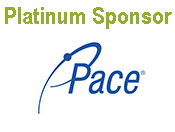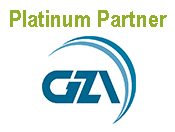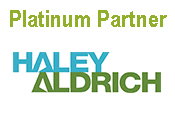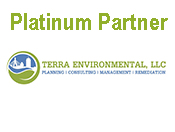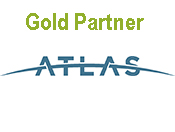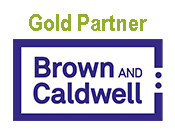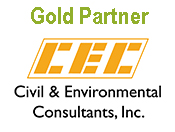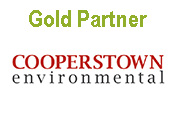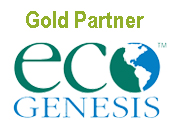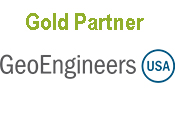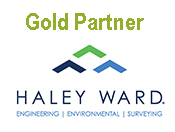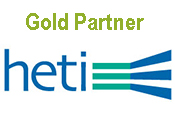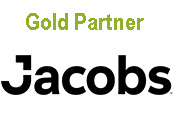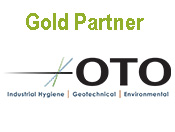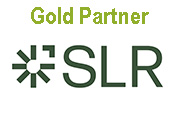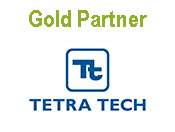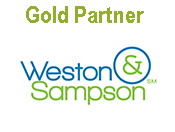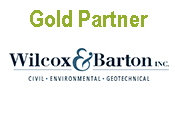|
The LSP Association (LSPA) requests your nominations for our 2020 "Contribution to the Practice" Awards in a new category: The LSPA Environmental Justice Award.
This award category was approved by the LSPA Board in early September 2020 as one action the LSPA can take to increase awareness of Environmental Justice (EJ) issues and support environmental justice communities.
In Massachusetts, a neighborhood is defined as an Environmental Justice population if any of the following are true:
Learn more here.
The LSPA Environmental Justice Award is presented to an individual or organization from the public, non-profit, or private sector for recent or continuing outstanding contributions in increasing awareness of EJ issues and/or supporting EJ communities.
This year, the award will be presented at the LSPA December 2020 Membership Meeting webinar.
If you wish to nominate a deserving person and/or organization, please email Kristi Lefebvre, LSPA Communications Mangager, at [email protected] with the nominee's name and supporting materials. The deadline for nominations is Wednesday, September 30, 2020.
Nomination applications should include the following:
The LSPA Board of Directors will review the letters of nomination and supporting materials for all nominees, and will contact references if appropriate. The Board will discuss and then vote on nominees. Awards are made at the sole discretion of the LSPA Board of Directors. Awards are not always made in each category. There may be more than one award presented in any category.
Read here for more information about the LSPA's other Contribution to the Practice Award categories.
To view the list of prior award recipients, please click here.
Michele Paul, LSP, President
|
Register Now!
Read More
August 2020 Newsletter
LSPA's August 2020 Member Newsletter has been published! Table of Contents is listed below. Please log in to your account and visit Member Materials to view the full newsletter.
In this Issue....
Information re: July 2020 LSP License Renewals & Job Opportunity at LSP Board of Registration
|
July 2020 LSP License Renewals
The following statement, which clarifies Governor Baker's recent Executive Order related to LSP renewals, has been posted on the LSP Board of Registration website. Please see below and direct renewal questions to the LSP Board at [email protected].
On June 26, 2020, Governor Baker issued COVID-19 Executive Order No. 41 which rescinded the automatic license renewals for LSPs. Therefore, LSP license renewals due on or after July 10, 2020, must be received by close of business July 30, 2020, pursuant to 309 CMR 3.06(1). The LSP Board now notifies all LSPs who must file an Application for Renewal of LSP License in July 2020, that they may file an Application for 90-day extension as defined in 309 CMR 3.06(5)-(6). Additionally, LSPs who meet the criteria outlined in 309 CMR 2.12 may file a Petition for Waiver. Please note that Petitions for Waiver of fees are prohibited by the regulation. All petitions and Applications for 90-day extensions must be received by close of business July 30, 2020.
|
- Emailing local officials,
- Conducting public meetings at PIP sites, and
- Establishing information repositories.
July 2020 Newsletter
LSPA's July 2020 Member Newsletter has been published! Table of Contents is listed below. Please log in to your account and visit Member Materials to view the full newsletter.
In this Issue....
Recent Massachusetts Executive Orders
- if the deadline to file an appeal would have fallen, or will fall, between March 10th and July 1, 2020, the new deadline to file an appeal will be August 10th.
- if the deadline to file an appeal falls after July 1, 2020, the deadline would be August 10th or the normal appeal deadline under MassDEP rules, whichever is later.
- if the deadline for MassDEP to act on a constructive approval would have fallen between March 10 and July 1, MassDEP's new deadline to act would now be August 17th.
- if the deadline for MassDEP to act would fall after July 1, the deadline would be August 17th or the normal deadline for MassDEP to act under its rules, whichever is later.
- if the deadline for MassDEP to act on a permit application or hold a hearing would have fallen between March 10 and July 1, the new deadline to act would now be August 10th.
- if the deadline for MassDEP to act would fall after July 1, the deadline would be August 10th or the normal deadline for DEP to act under its rules, whichever is later.
As of this morning, the LSP Board has new information regarding LSP license renewals on its website. That information is copied below.
Updated: Jul. 2nd, 2020, 8:30 am
Read More
Action Alert: Ask Your State Senator to Support LSPA's Home Heating Oil Insurance Bill
The portal will be available beginning on June 30, 2020 at: https://eplace.eea.mass.gov/citizenaccess and instructions will be available at: https://www.mass.gov/info-details/surface-water-discharge-permitting-npdes. ePLACE technical support will also be available. Applications and NOIs received by email or mail after this date will need to be resubmitted using ePLACE.
LSPA Unveils June 2020 Resource Tip
The following LSPA resource tip was presented at the June 2020 Membership Meeting, which was held virtually through the Zoom webinar platform, on June 18, 2020.
LSPA Resource Tip for More Resilient and Sustainable Remediation Solutions
Read More
- Jason Chrzanowski, LSP, Senior Scientist, Roux Associates. Mr. Chrzanowski will begin his first 3-year term on July 1, 2020.
- Lauren Konetzny, LSP, Senior Project Manager, Cooperstown Environmental. Ms. Konetzny will begin her second 3-year term on July 1, 2020.
- Michele Paul, LSP, Director of Resilience and Environmental Stewardship, City of New Bedford, MA. Ms. Paul will begin her second 3-year term on July 1, 2020.
This 20-minute video created by Phil Platcow, Senior Vice President for Health & Safety at The Vertex Companies, Inc., shows us how to get our home workspace set up for ergonomic success! Phil covers several different areas including what ergonomics is and how to have the proper at home set-up. He even tackles how to avoid distractions and provides information on our overall wellness. A BIG thank you to Phil and VERTEX for sharing their content with the LSPA and it's members. We hope you all enjoy the video.
Read More
Updated Covid-19 Resources
|
BWSC Q & A: Covid-19 Edition
At last week's BWSC Office Hours, Paul Locke, BWSC Assistant Commissioner, announced that MassDEP has added a new question to the MCP Q & A: Covid-19 Edition. The question pertains to Limited Removal Action (LRA) Extensions.
The question is whether extensions will be granted in situations where there is an inability to meet the 120-day deadline for completing an LRA. In this case the delay is due to construction shutdowns in Boston.
MassDEP's response is:
If your client cannot conduct the Limited Removal Action prior to the end of the 120 days from the time s/he had knowledge of the PCB release, your client must notify.
The Department has issued guidance (available here) that describes its expectations and application of enforcement discretion for certain delays in conducting response actions during the COVID-19 State of Emergency. As stated in the guidance, all 2-hour, 72-hour and 120 day notifications must continue to be made during the State of Emergency. This is consistent with the provisions at 310 CMR 40.0025(1), which allow for written notices of delay in the case of a Force Majeure "except a deadline or time period for providing notification of a release or threat of release of oil and/or hazardous material, or an Imminent Hazard, as required by 310 CMR 40.0300..."
Questions may be submitted to MassDEP's BWSC at [email protected]. MassDEP staff will respond directly to the questions received and, if a question is of more general interest, post the answers on the webpage.
|
|
City of Boston Covid-19 Tools of the Trade
The City of Boston Inspectional Services Department has implemented new protocols for essential construction work in the City of Boston due to the Covid-19 public health emergency. As of May 18, 2020, The City of Boston began allowing essential construction on sites that met certain criteria, including filing a Covid-19 Safety plan and a signed affidavit.
To stay up to date with the latest news on construction in Boston, visit this website. You will also find Covid-19 guidelines and guidance videos there. Take a look at this video for tips to ensure your Boston jobsite is safe, sanitary and in compliance with Covid-19 requirements. Indoor Air and Covid-19
The LSPA's Technical Practices Committee (TPC) reminds us that the American Society of Heating, Refrigerating and Air-Conditioning Engineers (ASHRAE) has prepared a list of resources to address Coronavirus airborne transmission in hospitals, aircraft and other enclosed spaces. It can be found here.
If the topic of indoor air and building design/ventilation is of interest to you, please consider attending a TPC meeting; this topic is usually one of several meeting agenda items. The committee meets next by Zoom on June 10th from 8 am to 10 am. Contact Committee Chair Roger Thibault to receive the Zoom link.
Occupational Health and Safety
Another resource discussed at a recent TPC meeting is this guidance document from the U.S. Occupational Safety and Health Administration (OSHA) entitled "Guidance on Preparing Workplaces for COVID-19."
|
LSPA Members Helping Out During Pandemic
|
As COVID-19 continues to impact our daily lives, we want to recognize members of the LSPA who are going "above and beyond" by donating their time and resources to help others through this difficult period.
Below are two examples of these generous contributions. Kudos to Trident Environmental and Amy Rosenstein. Please contact us at [email protected] if you know of others who are helping.
Trident Environmental Group provided free decontamination services for first responder vehicles at their Norfolk headquarters. All surrounding towns were invited to participate in the April 18th event. Trident serviced about 60 police, fire and medical vehicles from Norfolk, Wrentham and Plainville.
Teams from the environmental contracting firm used their Steramist surface units to thoroughly disinfect first responder vehicles with a hydrogen peroxide-based mist and fog composed of ionized hydrogen peroxide.
Amy Rosenstein, Risk Assessor at the US Army Corps of Engineers, New England District, and LSPA member, is sewing face masks in her spare time for the Lexington Coalition Mask Team. This group has been donating masks to social service agencies and medical facilities. So far, they have collectively contributed 14,533+ handmade masks to those who need them.
|
Do You Have a Webinar Topic to Share?
LSPA Unveils April 2020 LSPA Tip
The following LSPA tip was presented at the April 2020 Membership Meeting, which was held virtually through the Zoom webinar platform, on April 28, 2020.
LSPA Tip for eDEP Submittals During the Time of COVID-19

